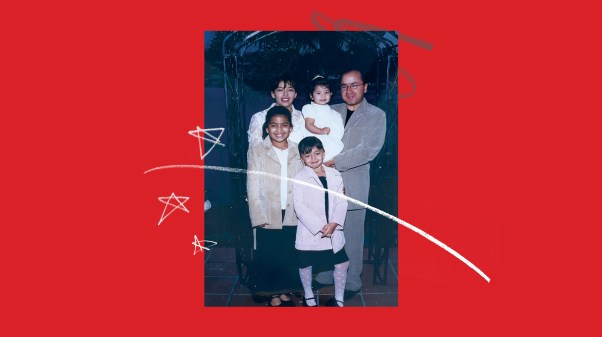A young Christian couple bring their little child to the church to be baptized or dedicated to the Lord and in so doing give public testimony that they desire to rear him in the nurture and admonition of the Lord. To some parents it may be only an expected ceremony, but to many it is a promise to bring up the child in the Christian faith, to teach the Scriptures to him, and if possible to lead him to accept Christ as Saviour.
What guarantee do these parents have that this child, dedicated and reared in the faith, will adhere to this faith? Is this only a hope? Can parents be assured that their expectations will be honored by Him who knows the thoughts and intents of the heart? What about young people who have turned away from the faith but as small children were sincerely dedicated by God-fearing parents? What went wrong? Were the parents at fault? Can we say only that each person must make his own decision for or against the claims of Christ?
Christian parents have long struggled with this problem. In early childhood, faith seems natural and assured. Because of the child’s dependence on the parents, he comes to identify with them and to imitate their actions, attitudes, and beliefs. He tries to be like his parents because this makes him feel more grown up, and growing up is something he wants very much to do. Moreover, since parents represent the social group in which the child is raised, by identifying with the parents he learns to accept the demands of society, and these demands are incorporated into his personality structure. This has sometimes been called the internalization of the superego by Freudian psychologists, or the development of a conscience by social-learning theorists. A child learns a great deal by observation and identification, by copying parental behavior and incorporating parental values.
This means that parents who believe in Jesus Christ and in the Scriptures and who communicate this by their actions and speech will almost invariably have the satisfaction of seeing within the young child similar actions and speech, and they may even have the joy of leading the child to faith in Christ. Their promise to God made at the dedication of their infant seems to be coming to fruition. In their joy, they may renew their commitment to encourage the child to continue in the faith.
However, as the child approaches adolescence, the parents may develop an uncomfortable feeling, realizing that their influence is decreasing while the influence of the child’s peers is increasing. In addition, teachers and other adults who may not share the Christian views of the parents influence the behavior and values of the child. The parents feel they must intervene before it is too late. But what are they to do? Careful scrutiny of the child’s friends and regulation of his time and activities becomes increasingly difficult. Insistence on obedience is the parents’ prerogative, but if they lose rapport with the child, the loss may bring an end to the former identification process.
Is the answer, then, to hope and pray that God will take care of the problem in his own way? Some may feel this is the way of faith, but most of us are unwilling to adopt this approach exclusively. We feel strongly that our children are a charge to keep and that we must plan carefully how to help them “keep the faith.”
One alternative is to guard the child from an early age against all environmental situations that will tend to lead him from the truth. In this method, the child must be surrounded by adults and children who share the parents’ religious views. This means that the social life of the child is kept within the church or church-related groups. He may go to meetings and parties sponsored by the church or held in the homes of fellow believers. If this pattern is continued over many years, the young person will feel at ease with believers but will be so uncomfortable with non-believers that he will be quick to return to the fellowship of those of “like precious faith.”
This approach requires that the child attend a parochial or church-related school, where teachers reinforce the religious views of the parents and the problem of competing authorities does not arise. There is little reason under these circumstances for the child to question the truths of Scripture. Those who care for him physically and emotionally and those who teach him all hold to similar religious convictions. All information he acquires adds to his faith. Truth is built upon truth, year after year, until, it is hoped, the whole structure stands firm and solid and the parent feels confident that the child has been well grounded in the faith.
One obvious weakness of this approach is that the social life within the church may be quite inadequate. The fundamentalist groups, which are often the most concerned with rearing the child to adopt the convictions of the parents, tend to question the time and expense involved in providing social activities. And so the social life of young people becomes based on numerous religious meetings occasionally followed by a social hour. Another possible problem is that a satisfactory parochial school may be unavailable, or perhaps the parents cannot afford to send the child to one. The parents may also feel it is not best for the child to attend such a school; yet they are eager to see him remain in the faith.
Other weaknesses include a sort of anti-intellectualism that pervades some religious groups. The findings of science are ridiculed because they are based on empirical research rather than on Scripture. Or conformity may mean not learning to appreciate much of the beauty that surrounds us in such forms as art or music and may even lead to a condemnation of that beauty as “worldly.” Also, the Christian young person isolated from the world or reality has no opportunity for evaluating his position as a Christian within the total world picture, and for this reason it is not unusual to see him develop a number of mental mechanisms to compensate for this deficit. Those commonly seen include separating incompatible attitudes by logic-tight compartments, withdrawing into passivity, and increasing feelings of worth by conformity to the religious group. At the same time, feelings of persecution are not uncommon.
But even if these weaknesses are not present and even if the parents succeed in keeping the child in Christian schools throughout his elementary, secondary, and college years, they cannot maintain this protective environment indefinitely. The time will come when the young person must compare new ideas with old. As he does so, he will realize that some of the things he was taught are inconsistent and illogical. Confusion may result, as he experiences genuine intellectual doubts compounded by emotional overtones stemming from his identification with his Christian parents and friends. The hoped-for result is that he will retain the basic tenets of Christian belief even though the way he works this out in his own life may differ from that of his parents. Some, however, find it difficult to sort out the kernel of truth from the husk surrounding it, and they throw out the whole thing. They may turn their backs on Christianity and raise their own children quite apart from the church.
Is there a better way for Christian parents to accomplish the goal of keeping the child in the faith? An answer may be found in the work of certain social psychologists on the effects of one-sided versus two-sided communications as these relate to attitude stability and attitude change. (An example of this type of research is seen in A.A. Lumsdaine and I. L. Janis, “Resistance to ‘counterpropaganda’ produced by one-sided and two-sided ‘propaganda’ presentations,” Public Opinion Quarterly, 1953–54„ 17, pp. 311–18.)
The method calls for giving small doses of an opposing viewpoint and then helping the receiver counteract this view. This has sometimes been referred to as “inoculation”: if arguments against a belief are presented in weakened form, resistance will be built to future attacks of that belief. Two essential aspects of this process are first that the child be aware that his beliefs may be subject to attack and second that he be given the opportunity to develop defenses against the attack. A child raised in an environment in which he has not had the opportunity to build up these defenses may succumb when placed in a situation in which the “disease” thrives. (The works of the following psychologists show the vulnerability of those who have not been exposed to counterarguments: W. J. McGuire, “Persistence of the resistance to persuasion induced by various types of prior belief defenses.” Journal of Abnormal and Social Psychology, 1962, 64, pp. 241–48; W. J. McGuire and D. Papageorgis, “The relative efficacy of various types of prior belief-defense in producing immunity against persuasion,” Journal of Abnormal and Social Psychology, 1961, 62, pp. 327–37.)
This means that the Christian parent must be willing to talk with the child about those who do not hold to Christian doctrine and convictions and give him reasons why many people in the world are not believers. These reasons must accord with what the child will find for himself as he meets an increasing number of unbelievers and realizes that many of them are socially and morally responsible people. The presentation of opposing arguments in a context that rejects them, such as the home or the church, weakens the future effectiveness of these arguments. It also gives the child practice in weighing the issues so that he is in a position to do this more effectively in the years to come.
Every attitude or belief has affective (emotions), cognitive (knowledge), and behavioral (conduct) components. Building resistance to attitude change must take into account all three: feeling and emotions about the belief, thoughts and knowledge about the belief, and conduct (including will to behave) toward that belief. The Christian parent should try to keep all these in perspective. Children who have identified strongly with their parents will have adopted the feelings and emotions of their parents. For these parents to keep a close relationship with the child as long as possible will augment this affective component. Cognitive elements of the belief may be enhanced, as has already been mentioned, by imparting knowledge about spiritual truths in a Christian environment and by giving the child active practice in adding to his knowledge as he reacts to small doses of opposing views. This combination of the affective and the cognitive will predispose him to guard his attitudes against dissonant attitudes and beliefs.
This will not, of course, guarantee a lifetime of Christian behavior or commitment to Christ, but the expectation of continuous belief will far surpass that for children who have not had the opportunity to build up both the affective and the cognitive components of belief. The behavioral component includes the will as well as predisposition, and each young person must make his own final decision for or against the religious views of his parents. But as it is difficult for those who have not been brought up in the faith to accept Christ because neither the affective nor the cognitive aspects of their lives predispose them to believe, it should be just as difficult for children raised in Christian homes not to believe in the great doctrines of the faith.
The Christian parent will pray and commit his child to the Lord and trust in the saving power of Christ. He will rear the child in a home where the truths of Scripture are taught and where he in turn serves as a model of Christian living. He will add to this a recognition of opposing views that are held by intellectually honest non-believers and present them in such a way that the child has practice in refuting these views. In this way we can have greater assurance that although “the secret things belong unto the Lord our God … those things which are revealed belong unto us and to our children for ever …” (Deut. 29:29).










